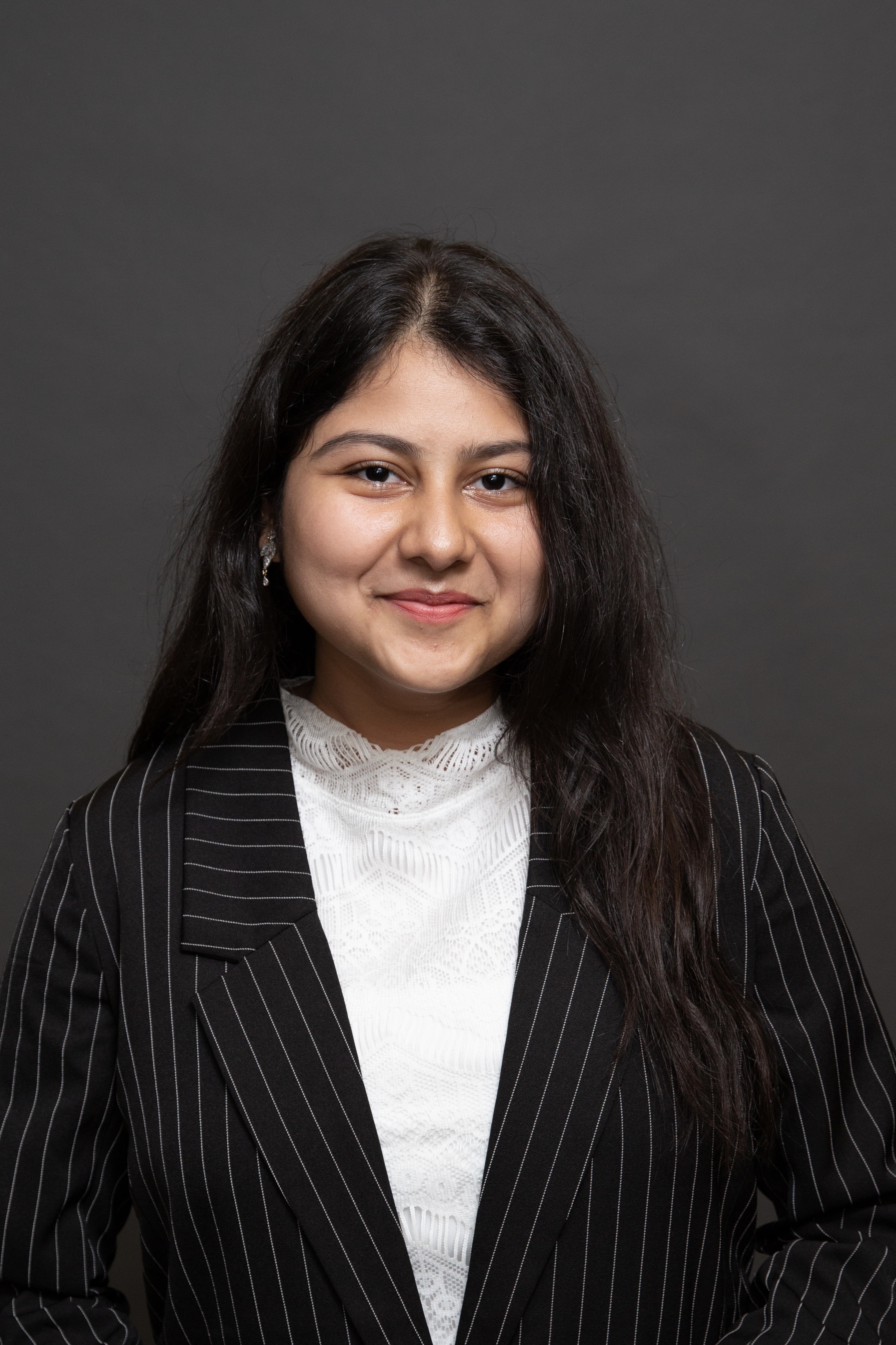Spirituality and Religion
Symposium 58 - Religion as a Source of Community Building and Positive Mental Health in American Muslims
Recommended Readings: Tanhan, A., Young, J.S. Muslims and Mental Health Services: A Concept Map and a Theoretical Framework. J Relig Health 61, 23–63 (2022). https://doi.org/10.1007/s10943-021-01324-4, Khan, M., & Ecklund, K. (2012). Attitudes toward Muslim Americans post-9/11. Journal of Muslim Mental Health. https://doi.org/10.3998/jmmh.10381607.0007.101, Hodge, D. R., Zidan, T., & Husain, A. (2016). Developing a model of wellness among Muslims: Examining the role of spirituality. British Journal of Social Work, 46(6), 1671–1689. https://doi.org/10.1093/bjsw/bcv099, ,
-

Hoor Ul Ain, B.S. (she/her/hers)
Student
University of Nevada, Las Vegas
Las Vegas, Nevada, United States -
NA
Nuha Alshabani, Ph.D.
Assistant Faculty
Boston University
Boston, Massachusetts, United States -
KR
Katrina Rbeiz, M.S. (she/her/hers)
Clinical Psychology PhD Student
Vanderbilt University
Nashville, Tennessee, United States -
MM
Merranda McLaughlin, Ph.D.
Clinical Fellow
Massachusetts General Hospital and Harvard Medical School
Seattle, Washington, United States -
.jpg)
Salman Ahmad, MS
Graduate Student
University of Miami
Miami, Florida, United States -

Hoor Ul Ain, B.S. (she/her/hers)
Student
University of Nevada, Las Vegas
Las Vegas, Nevada, United States
Chair(s)
Discussant(s)
Presenter(s)
As of 2015, there were 7 million Muslims in America (CAIR, 2015) and Islam is considered to be one of the fastest growing populations in the country ((Pew Research Center, 2016). Despite the large growth in Muslim populations in recent years, they have been historically understudied in psychological research (Khan & Ecklund, 2013), leading to significant assessment and treatment gaps in Muslim mental health (Tahnan and Young, 2022). Often, the field disregards the religious and spiritual experiences of this population (Skinner, 2010). Additionally, most of the existing research discusses risk factors for psychopathology associated with being an historically underrepresented group in the US and experiences related to Islamophobia. Very few studies highlight resilience and factors related to strength within this community. The few studies on protective factors for Muslim mental health have found spirituality, religiosity, and wearing the hijab to be predictors of general psychological well-being in Muslims (Hodge, Zidan, and Husain, 2016; Gulamhussein and Eaton, 2015; Jasperse, Ward, and Jose, 2011); however, more research on this subject is needed to understand the unique strengths of this population. This symposium highlights strength and resilience factors among Muslim populations in America. The first speaker will discuss their findings about religious and spiritual identity as a protective factor for psychosis. Specifically they will discuss the positive correlation between religious/spiritual identity and cultural belonging and resilience, as well as the negative correlation between religious/spiritual identity and psychosis risk, trauma, and daily and lifetime experiences of discrimination. The second speaker will highlight findings from their study that combines a systematic review and meta-analysis to examine the existing literature in Muslim mental health and statistically evaluate factors related to professional psychological help-seeking in this population. They will examine traits like self-stigma, knowledge/ familiarity with mental health resources, and endorsement of pre-existing negative cultural beliefs about mental illness as protective factors .The third speaker will discuss their findings regarding openness to and engagement with mental health help-seeking behaviors as protective factors against the negative effects of Islamophobia on depression among Muslims living in the US. This talk will be based on community-based mosque-going Muslims who attended a mental health workshop (N = 134). The last speaker will discuss university community belongingness as a buffer against eating disorder symptoms in female Muslim college students based on the sample from the nationwide US Healthy Minds Study 2021- 2022. Finally, an expert in cultural responsive treatment for PTSD will serve as the discussant for the symposium by synthesizing findings and exploring future directions for evaluating protective factors against psychopathology among Muslims in America.
Learning Objectives:
- Identify psychopathology risk factors for American Muslims, such as Islamophobia, xenophobia, and acculturation
- Describe the limitations of existing assessment and treatment tools in adequately addressing the needs of this population
- Explain how community belongingness and cultural belonging can lead to positive mental health outcomes in American Muslims
- Recognize barriers to mental health help-seeking for American Muslims
- Identify reliance factors for American Muslims
Presentations:
-
4:30 PM - 5:30 PM EST(SYM 58) Exploring the Risk and Resilience Factors for Psychosis-risk Among Muslims Living in the United States
Speaker: Katrina S. Rbeiz, M.S. (she/her/hers) – Vanderbilt University
-
4:30 PM - 5:30 PM EST(SYM 58) A Systematic Review and Meta-analysis to Examine the State of Muslim Mental Health Literature and Predictors of Help-seeking in Muslims Residing in North America
Speaker: Merranda M. McLaughlin, Ph.D. – Massachusetts General Hospital and Harvard Medical School
Co-author: Salman S. Ahmad, MS – University of Miami
Co-author: Amy G. Weisman de Mamani, Ph.D. – University of Miami
-
4:30 PM - 5:30 PM EST(SYM 58) Do Predictors of Mental Health Help-seeking Moderate the Relationships Between Perceived Islamophobia and Depression in Mosque-going Muslims?
Speaker: Salman S. Ahmad, MS – University of Miami
Co-author: Merranda M. McLaughlin, Ph.D. – Massachusetts General Hospital and Harvard Medical School
Co-author: Amy G. Weisman de Mamani, Ph.D. – University of Miami
-
4:30 PM - 5:30 PM EST(SYM 58) University Community Belongingness as a Buffer for Eating Pathology in Female Muslim University Students
Speaker: Hoor Ul Ain, B.S. (she/her/hers) – University of Nevada, Las Vegas
Co-author: Jaelin Isquith, B.A. – University of Nevada, Las Vegas
Co-author: Kara A. Christensen Pacella, Ph.D. (she/her/hers) – University of Nevada, Las Vegas

.png)
